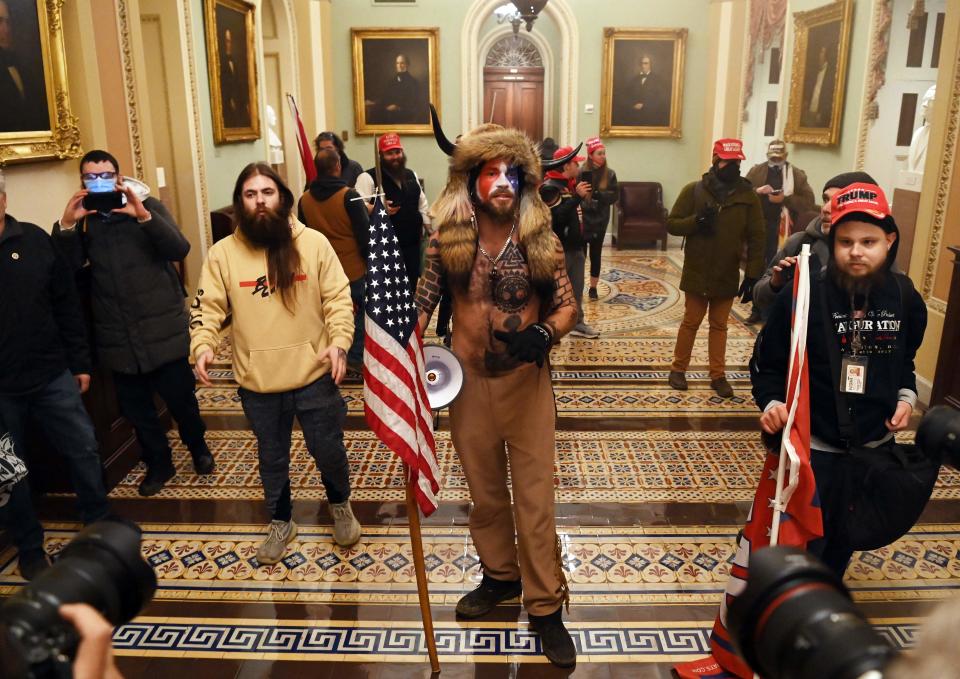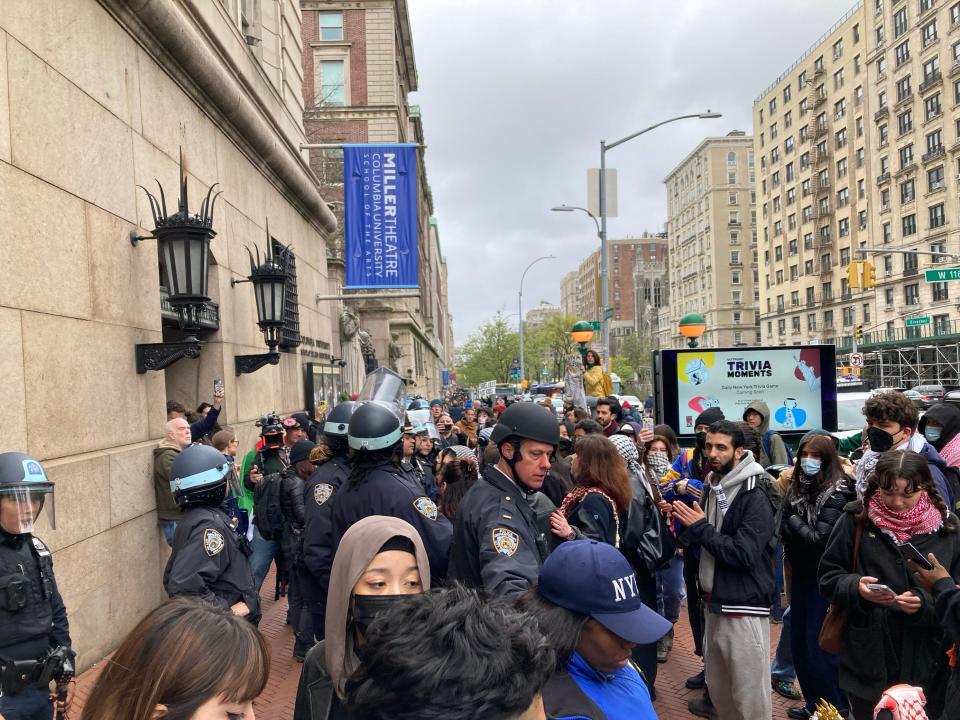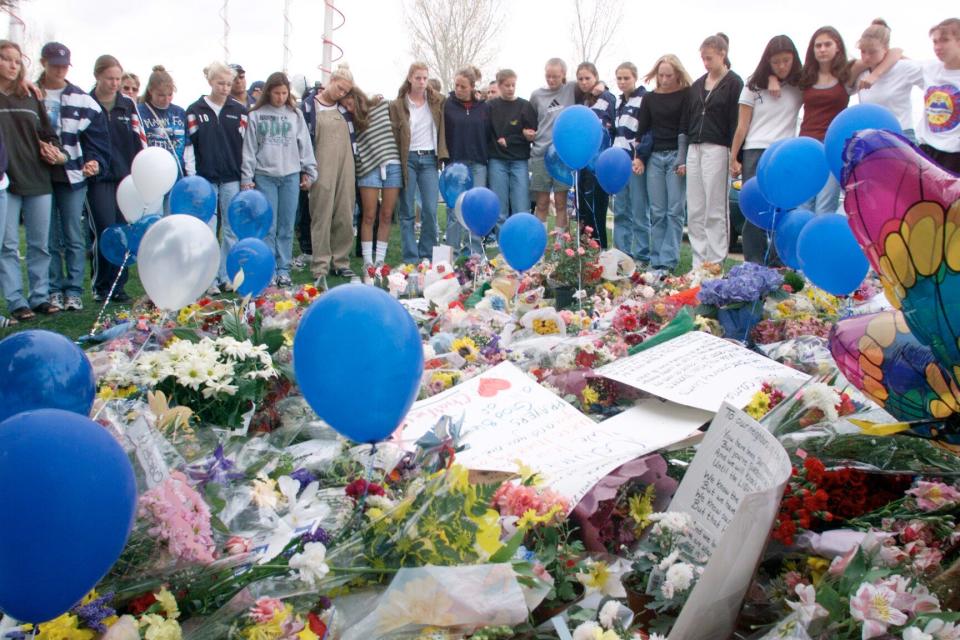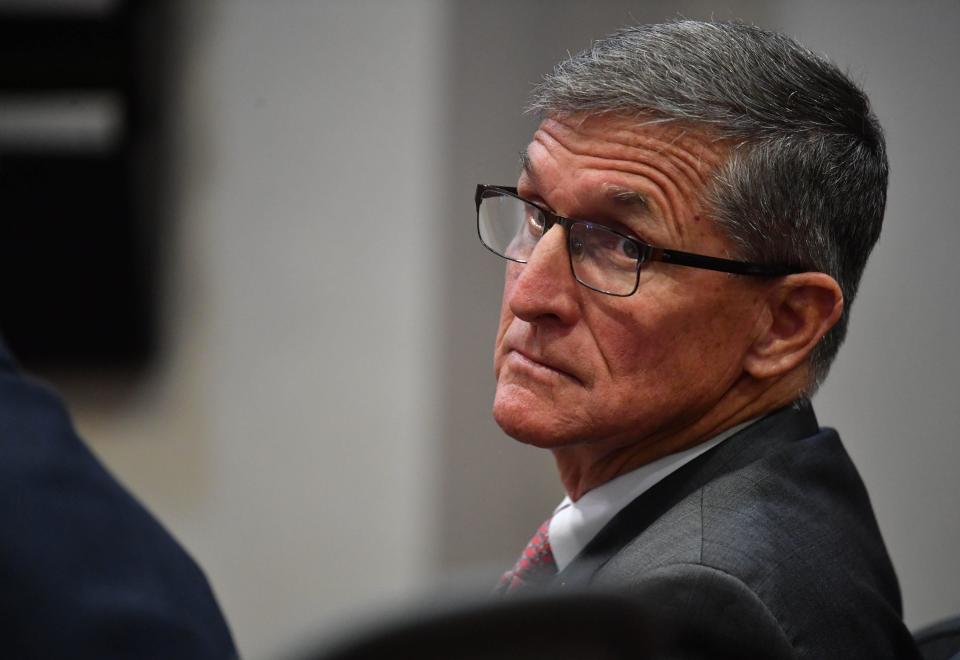Supreme Court ruling could upend cases for some Jan. 6 insurrectionists
A Supreme Court case could upend the prosecutions of Jan. 6 riot defendants. Meanwhile, Jewish Americans across the country are facing unprecedented levels of antisemitism, and USA TODAY tells their stories. And it’s been 25 years since the shooting at Columbine High School, but the attack continues to resonate online, where users now glorify the shooters in a “dark fandom.”
It’s the week in extremism.

SCOTUS case could become a victory for Jan. 6 defendants
A law that has been used to prosecute hundreds of people for their roles in the Jan. 6 insurrection is now in question in the Supreme Court. If justices rule that the law has been interpreted too broadly, they could overturn the most serious charges for more than a quarter of the rioters convicted so far.
The justices heard arguments this week in the case against Joseph Fischer, a former police officer from Pennsylvania who was indicted by a grand jury in 2021 for entering the Capitol and charging at police officers.
Fischer’s attorney argued that a 2002 statute used to charge his client with obstructing or interfering with official government proceedings has been interpreted too broadly by prosecutors, who have used the law to charge more than 350 insurrectionists, though most people have faced additional charges under other laws as well.
The law was passed after the scandal surrounding the collapse of the energy company Enron, during which executives were found to have shredded documents.
While the law refers to destroying documents, it also says that anyone who “otherwise obstructs, influences, or impedes any official proceeding, or attempts to do so,” can be charged with up to 20 years in prison. It is this part of the statute that prosecutors have relied on, including in their prosecution of former President Donald Trump .
An attorney representing the government argued that, while the statute allows for people to be sentenced to up to 20 years for obstruction, prosecutors have only sought sentences of one or two years in the Jan. 6 cases.
The court is expected to release its ruling on the case in July.

Antisemitism across the country: Beyond the numbers
USA Today spoke with Jewish people in all 50 states for a story this week that seeks to understand how the nation’s Jewish community has been impacted by antisemitism in the wake of the Oct. 7 attack on Israel and the Israel-Hamas war.
Jews across the country have hidden signs of their faith, USA TODAY found. Synagogues and Jewish neighborhoods from Alabama to Washington have been threatened or defaced and are ramping up security.
But there has also been an outpouring of support. “By and large, the overwhelming communal sentiment is one of support to the Jewish people,” Rabbi Avremi Zippel, of Salt Lake City, told USA TODAY.
The actress Mayim Bialik told USA TODAY: “I was raised and educated and even studied the Jewish experience in America, and I knew that there was a tremendous amount of antisemitism both covert and overt, but I did not understand the scale.”

25 years after Columbine, shooting is glorified in ‘dark fandom’
Another USA TODAY special report this week looks at the lasting legacy of the Columbine High School shooting a quarter-century after the attack. Legions of people still share Columbine-related posts and videos on social media and elsewhere online, even though many of the people posting weren’t even born in 1999.
The Columbine shooting remains a magnet for “dark fandom” online, experts tell USA TODAY. Tens or hundreds of thousands of people share videos, memes and images connected to the attack.
For a study earlier this year, researchers at the Institute for Strategic Dialogue surfaced 127 videos glorifying a range of mass shooters on TikTok and X, formerly Twitter. TikTok told USA TODAY it is working hard at, and spending money on, removing this content, but just this week the researchers easily and quickly found several more such videos.
Anne Marie Hochhalter, who was shot and paralyzed during the Columbine attack, said she blames tech companies for failing to moderate hate speech on their platforms: "These people who are at the helm of the social media companies … those are the true extremists,” Hochhalter said. "Because they're allowing all of it to happen.”

Trump lieutenants meet with far-right Constitutional Sheriffs
Top Trump allies, including Michael Flynn and entrepreneur Mike Lindell, met this week with the Constitutional Sheriffs and Peace Officers Association, a far-right group known for boosting conspiracy theories and anti-federal government rhetoric.
Lindell, who has spread conspiracy theories about the 2020 election, spoke to the gathering in Las Vegas on Wednesday.
The meeting was billed as a training session on election fraud, The Guardian reported. Former Arizona sheriff Richard Mack, who founded the group, told The Guardian the border would be a focus of the meeting and that it would be attended by dozens of officials including sheriffs from states like Arizona and Nevada (which doesn’t share a border with Mexico): “Election fraud and the border go hand in hand,” said Mack.
Statistic of the week: 140 percent
That’s how much antisemitic incidents increased from 2022 to 2023, breaking all previous records, according to the Anti-Defamation League.
The increase was driven in part by reactions to the Israel-Hamas war, the ADL noted in its annual audit, which includes “both criminal and non-criminal acts of harassment and intimidation, including distribution of hate propaganda, threats and slurs, as well as vandalism and assault.”
ADL researchers counted a total of 8,873 incidents across the country. Of those, 1,350 incidents were included due to a methodology update enacted by the ADL after the Oct. 7 attack on Israel. Excluding those incidents, the increase from 2022 to 2023 was still 103%.
This article originally appeared on USA TODAY: Supreme Court case on Jan. 6 insurrection could overturn some convictions
